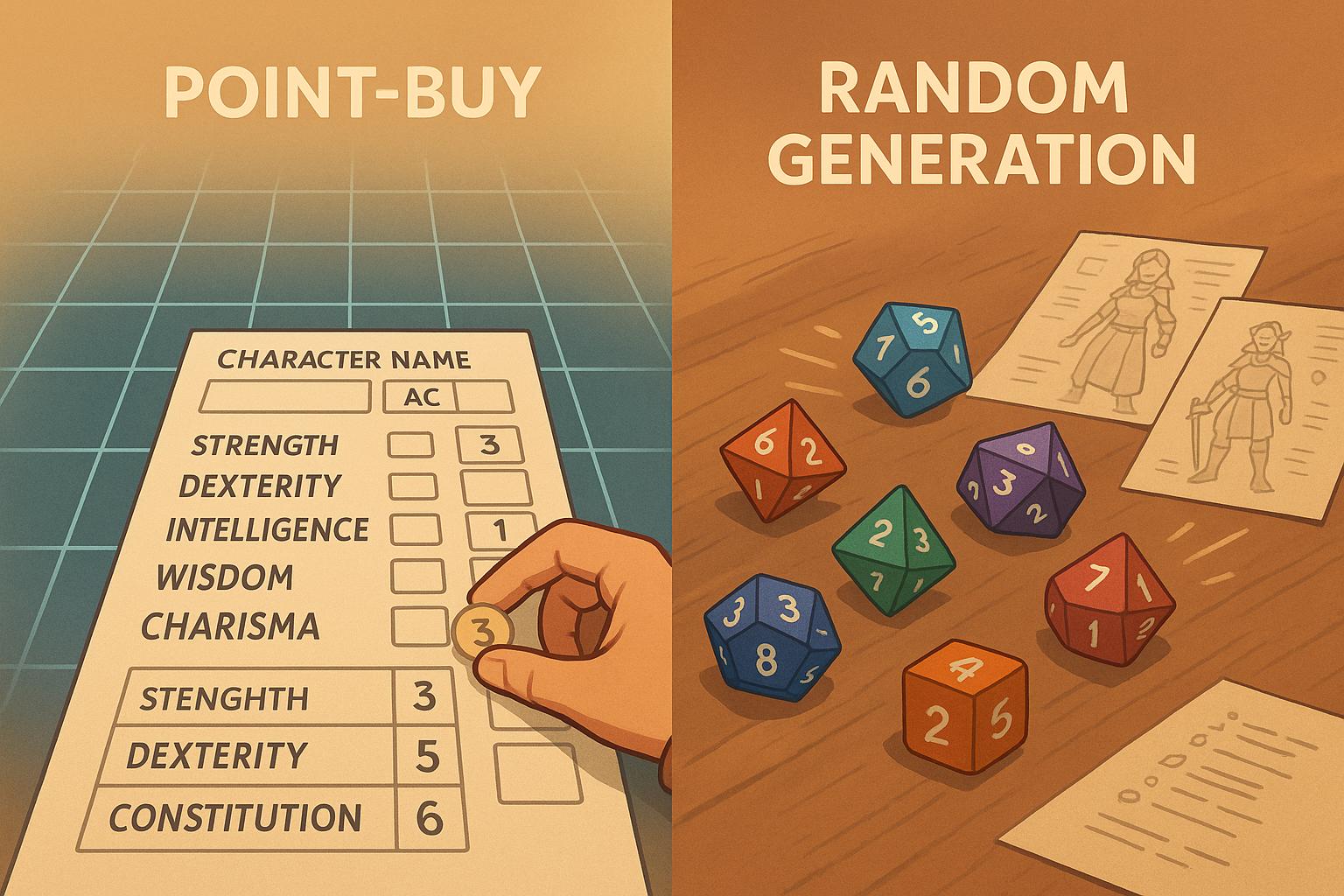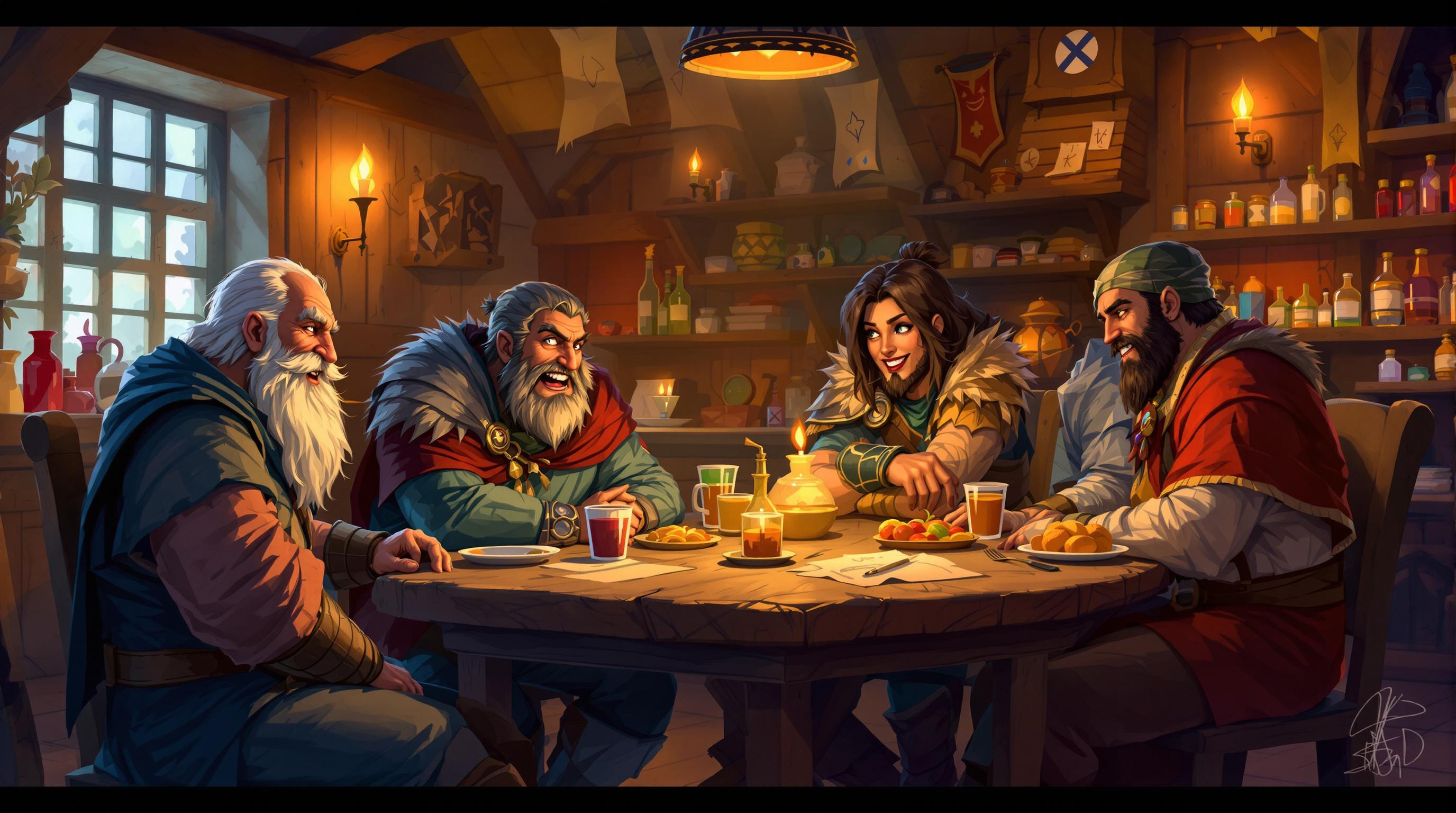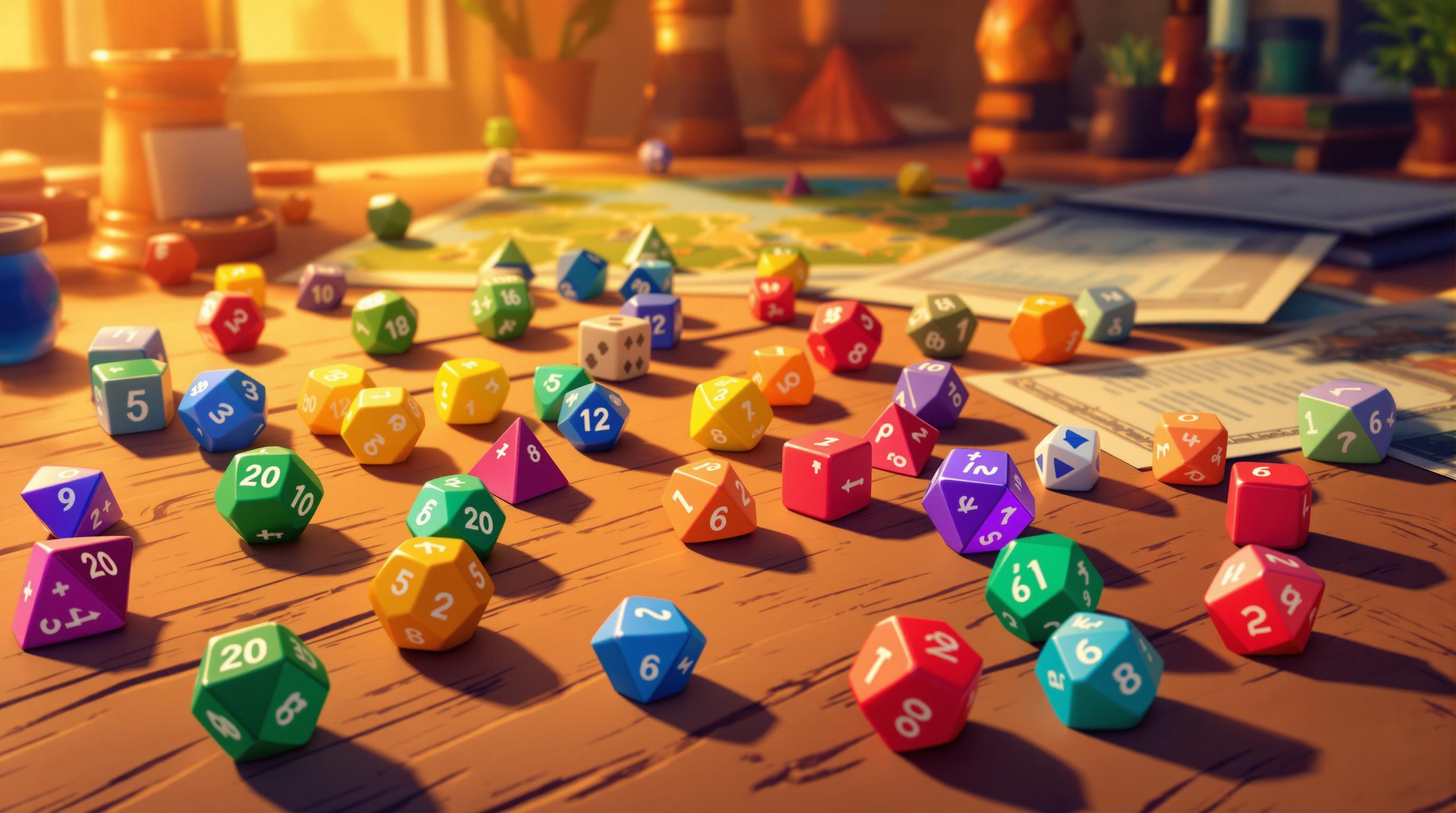Tabletop role-playing games (TTRPGs) offer a unique opportunity to craft compelling stories and explore vividly imagined characters. But for many players, character development can feel surface-level, with role-playing often limited to optimizing stats and rolling dice. What if you could take your characters deeper - exploring their relationships, flaws, and personal growth through smart, creative mechanics?
In this article, we’ll dive into five transformative RPG mechanics that can help you flesh out your characters in meaningful ways. These features, borrowed from a variety of TTRPG systems, are designed to amplify immersion, create rich storytelling opportunities, and add emotional weight to every choice your character makes. Whether you’re a game master or a player, you’ll find inspiration to spice up your game table.
The Power of Bonds - Inspired by Fabula Ultima
The concept of bonds from Fabula Ultima is a fantastic way to encourage character-driven role-playing within your group. In this system, each character forms bonds with their fellow party members, represented by a numeric modifier (e.g., +1 to +3). These bonds start small, reflecting the early stages of relationships, but evolve as the adventurers face challenges together.
What makes bonds special is their narrative depth. They aren’t just stats on a sheet - they embody the emotional connections between characters. For instance:
- A bond of loyalty or admiration might improve teamwork in combat or collaborative skill checks.
- A bond of mistrust might create tension, fueling dramatic in-game conflicts.
By tying game mechanics to relationships, bonds make collaborative storytelling feel more organic. As your party grows closer - or drifts apart - you’ll see it reflected not only in the narrative but also in gameplay. To adopt this in your game, add a simple system where players define relationships between their characters, with numbers that fluctuate based on in-game events.
Stress as a Storytelling Tool - Borrowed from Mothership
Stress is one of the most evocative mechanics in TTRPGs, and it’s masterfully implemented in the sci-fi horror game Mothership. Here, stress accumulates whenever your character fails a roll, faces trauma, or encounters something horrifying. The higher your stress level, the more likely you are to panic during critical moments.
This system adds layers of tension and realism to your character’s arc. For example:
- High stress: Your character might start having nightmares, losing focus, or acting erratically.
- Panic rolls: When stress gets too overwhelming, you’ll need to roll to see if your character holds it together - or suffers a debilitating breakdown.
Even better, this mechanic is adaptable. You can create custom stress tables tailored to your game’s tone. For lighter stories, stress could represent doubts about the mission, while in darker campaigns, it could symbolize a descent into madness. Either way, stress mechanics encourage players to role-play their characters’ fragility and growth in response to adversity.
The Beauty of Flawed Heroes - From Dragonbane’s Weaknesses
Flaws make characters human - or elven, or dwarven, or… well, you get the idea. In Dragonbane, each character is defined by a weakness. Unlike many systems where flaws are created during character generation and quickly forgotten, Dragonbane encourages players to embrace their weaknesses actively.
Here’s the twist: players are rewarded for giving in to their weaknesses. When a character succumbs to a flaw - whether it’s a vice, fear, or bad habit - they receive bonus experience points. This creates a fascinating dynamic where players are incentivized to make sub-optimal choices in service of the story. For example:
- A cowardly warrior might flee a battle, endangering the party but earning valuable XP.
- A reckless rogue might steal from an ally, creating conflict but staying true to their nature.
This system creates storytelling gold by encouraging players to wrestle with their characters’ imperfections. To implement a similar mechanic, reward players who lean into their flaws, whether through XP, narrative advantages, or in-game recognition.
Wrestling with Morality - Forbidden Lands’ Empathy Check
In traditional TTRPGs, violence often becomes the default solution to every problem. But what if morality played a larger role in your decision-making? Enter the empathy check from Forbidden Lands. This mechanic forces characters to confront the emotional weight of their actions, especially when taking a life in cold blood.
Here’s how it works:
- If your character tries to kill a defenseless person or creature, you roll an empathy check.
- Failing the check: The character suppresses their empathy and follows through with the act.
- Succeeding the check: The character’s empathy stops them, forcing them to find another way.
This system is a brilliant way to add depth to morally complex stories. Should your character execute a dangerous foe to protect others, even if it feels wrong? Or will they spare someone out of compassion, knowing it might come back to haunt them? The empathy check frames these choices as more than strategic moves - it makes them moments of character-defining drama. If your game doesn’t have a built-in empathy stat, you can substitute charisma or another fitting trait.
Pride as a Double-Edged Sword - From Forbidden Lands
Another standout mechanic from Forbidden Lands is pride, which highlights your character’s defining trait or belief. Players declare something their character takes immense pride in, such as:
- "I never miss a shot."
- "I always protect the innocent."
- "I can’t be outsmarted."
Once per session, you can invoke your pride to reroll a failed check. If the reroll succeeds, your character’s confidence is validated - and gameplay matches the narrative of their self-assuredness.
But here’s the twist: if the reroll fails, your pride is shattered. You lose that defining trait for the session, forcing your character to grapple with self-doubt. This mechanic creates beautiful arcs of vulnerability and growth. A prideful archer who misses their mark might learn to value teamwork over individual skill. A protector who fails to save someone might reevaluate their role in the group.
To implement this in your own game, allow players to define their pride and give them a single reroll tied to it. If they fail, encourage them to role-play the emotional fallout - then reward them with the chance to redefine their character’s priorities.
Key Takeaways
Here’s a quick recap of the five mechanics that can elevate your TTRPG experience:
- Bonds (Fabula Ultima): Add depth to party dynamics by tying mechanical bonuses to relationships, encouraging players to develop their connections over time.
- Stress (Mothership): Use escalating stress levels to portray how characters react to trauma and failure, creating rich opportunities for role-playing breakdowns.
- Weaknesses (Dragonbane): Reward players for embracing their characters’ flaws, even when it leads to trouble, fostering more nuanced storytelling.
- Empathy (Forbidden Lands): Introduce moral dilemmas with empathy checks, forcing characters to confront the consequences of violence and tough decisions.
- Pride (Forbidden Lands): Let players define what their characters value most, then use successes and failures tied to pride to drive meaningful character growth.
Final Thoughts
By incorporating these mechanics into your TTRPG sessions, you can unlock deeper storytelling and richer character development. Each mechanic offers new ways for players to step into their characters’ shoes, wrestling with their emotions, flaws, and relationships in ways that go beyond simple dice rolls. Whether you’re a player eager to explore your character’s inner world or a game master looking to inspire immersive role-playing, these tools are as flexible as they are transformative.
So next time you’re prepping a campaign, why not borrow some of these ideas? With a little creativity, you can turn any game into a playground for dramatic, character-driven storytelling. After all, the best adventures aren’t just about what your characters do - they’re about who they become along the way.
Source: "TOP 5 RPG Mechanics to play DEEPER characters! | GM & Player Tips" - Andre's GM Tips, YouTube, Aug 28, 2025 - https://www.youtube.com/watch?v=UPJpG0bmCdE
Use: Embedded for reference. Brief quotes used for commentary/review.


